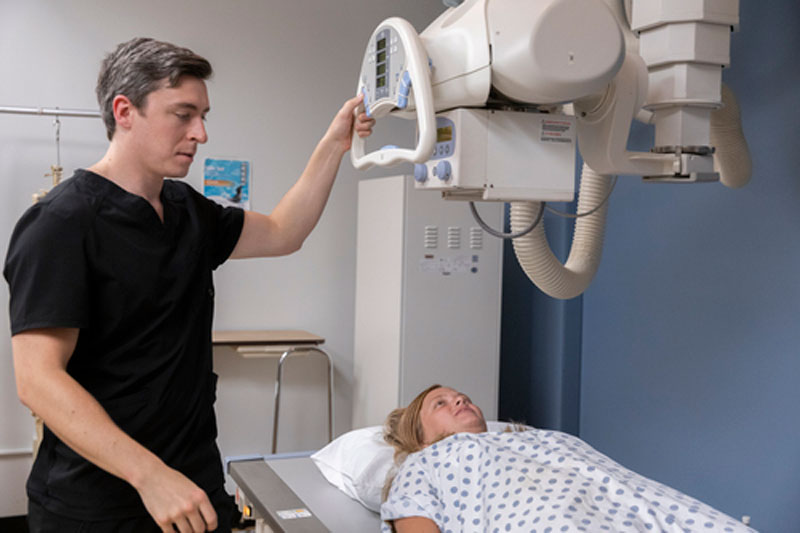We integrate classroom work and clinical rotations to maximize student learning. Formal clinical rotations are assigned every semester except the first summer of the program. During fall and spring semesters students will spend 20 – 24 hours per week at assigned clinical affiliates (approximately 300 hours per semester). Trauma/emergency imaging experience is gained at the University Hospital, a level one trauma center, in three one-week evening clinical rotations.
The typical clinical work week falls within the hours of 6 a.m. and 6 p.m. Monday through Friday. Students will complete evening and weekend rotations. The evening rotation will not extend beyond 11 p.m. Starting time will vary in accordance with the student’s class schedule.
The program observes the University of Missouri academic calendar that includes holiday observances, semester breaks, and between semester breaks, with the exception of the second summer in the program where students return one week early to fulfill their clinical education requirement.
In order to be eligible for clinical rotations, students will be expected to:
- Demonstrate the knowledge, skills, attitudes and judgment to function in a broad variety of clinical situations with a diverse patient population as described in the Essential Functional Ability Requirements.
- Provide a current immunization record and update as required.
- Complete a nationwide criminal background check as well as a caregiver screening through Missouri Department of Health and Senior Services using their social security number.
- Students should be prepared to show their government issued social security card for clinical vetting, if requested to do so.
- Students who have a valid social security number but do not have their government issued social security card will need to get a replacement through the Social Security Administration.
- International students who need to obtain a social security number should visit International Student and Scholar Services for information about identification documents.
- Students should be prepared to show their government issued social security card for clinical vetting, if requested to do so.
- Provide proof of a negative drug screening panel that meets clinical site requirements; Addition drug screenings may be requested at any time during the professional phase of the program.
- Successfully complete certification in BLS (Basic Life Support) for Healthcare Providers through the AHA (American Heart Association) offered during the student’s first semester in the program.
- Obtain scrubs, liquid impermeable shoes and other required materials/resources for their classroom and clinical training;
- Have reliable transportation to clinical sites up to 3 hours away from Columbia, Missouri.
- Successfully complete all clinical placement assignments, including evening and weekend rotations
- Maintain the required minimum 2.5 GPA per semester as well as cumulative.
- Successfully completely all pre-requisite courses.
- Follow all rules and regulations in the Radiography Student Handbook.
